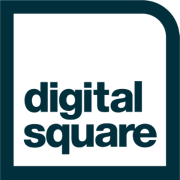Digital Square Investments in Global Goods:Approved Global Goods: Difference between revisions
| Line 49: | Line 49: | ||
===Logistimo Training=== | ===Logistimo Training=== | ||
This project intends to enable a scalable model for ongoing capacity development of last-mile workers using a combination of: | |||
*Easy-to-use self-serve, e-learning service with video content that enables self-learning and capacity assessments. | |||
*Community interactions with peer co-workers, supervisors or experts through an online group accessible within their mobile applications, which offers a sustained high-touch support. Such a group enables one to ask or answer questions online, as well as share of best practices. | |||
Both of these will be made contextually accessible through the Iota and Pulse mobile applications that are already in use. The former enables deeper self-learning, while the latter enables ongoing learning through human mentorship that anyone in the community can offer online. | |||
[https://applications.digitalsquare.io/notice-c/concept-note/52 Read the Concept Note.] | |||
===Lorem Ipsum for Digital Health=== | ===Lorem Ipsum for Digital Health=== | ||
Revision as of 17:40, 29 May 2019
Notice A
Partially Funded
- Bahnmi Transition
- Digital Health Atlas
- eIDSR: Core Development
- Global Open Facility Registry: Connect
- Global Open Facility Registry: Core
- iHRIS Foundation
- Open Data Kit 2
- OpenLMIS Gap Project
Notice B
Approved
- Child Growth Monitor
- HEARTH
- Making ODK2 Accessible
- Medic Mobile Community of Practice
- Mobile WACh
- mPowering Frontline Health Workers Initiative
- mSpray
- SORMAS
- Strengthening OCL
- Strengthening OpenMRS
Partially Funded
- Bahmni Hospital System as a FOSS
- Building an Open Source LIS Technologies COP
- DHIS2 Community of Practice
- Global Healthsites Mapping Project
- OpenCRVS
- Open Health Information Mediator (OpenHIM)
- OpenLMIS Community Engagement
- OpenSRP
Notice C
Approved
Logistimo Training
This project intends to enable a scalable model for ongoing capacity development of last-mile workers using a combination of:
- Easy-to-use self-serve, e-learning service with video content that enables self-learning and capacity assessments.
- Community interactions with peer co-workers, supervisors or experts through an online group accessible within their mobile applications, which offers a sustained high-touch support. Such a group enables one to ask or answer questions online, as well as share of best practices.
Both of these will be made contextually accessible through the Iota and Pulse mobile applications that are already in use. The former enables deeper self-learning, while the latter enables ongoing learning through human mentorship that anyone in the community can offer online.
Lorem Ipsum for Digital Health
Lorem Ipsum for Digital Health will create a harmonized synthetic data generator for malaria or HIV/AIDS that can be used by software developers, policy-makers, and researchers to improve the functionality and data analysis capabilities of DHIS 2, OpenMRS, iHRIS, and related services like OpenInfoMan, Global Open Facility Registry, and more. This new data will be statistically similar to country-level realities yet totally safe for public usage across the global digital health community.
Planwise
Planwise is an open source software tool that uses geospatial modeling and optimization techniques to make it simple for an organization to understand whom they are helping, and to maximize the efficiency impact of their services. Specifically, it shows a user what the current coverage and capacity of the network is, and then produces scenarios for how to best enhance access to care; for the least amount of funding.
Open Child Helpline System (OpenCHS) COP
OpenELIS within Laboratory Information Systems Community of Practice
The proposed project will significantly improve resources which enable health sector personnel to efficiently deploy, adopt, and use OpenELIS, advance awareness of the features and value proposition of the OpenELIS product within the laboratory sector in LMIC, and widen the community of stakeholders interested in maintaining and enhancing OpenELIS and other open-source LIS for long-term sustainability of system implementations and software products. Together the activities will contribute to improved availability of viable open-source LIS which support quality of laboratory practice in low and middle income countries (LMICs).
